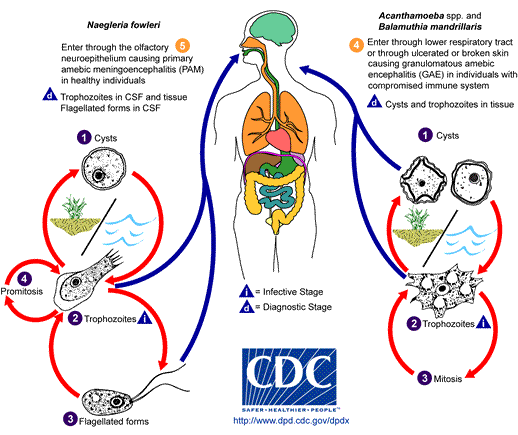
A teen boy has died in Texas from a rare brain-eating infection of amoebas. He probably contracted the infection while swimming in a lake about 70 miles north of Houston, according to local media.
Michael Riley Jr., 14, was a junior Olympian and honor student. He apparently became infected when he went swimming in the lake on Aug. 13 with his track team.
The disease is caused by a single-celled organism known as Naegleria fowleri, which is sometimes called the brain-eating amoeba. These organisms are usually found in warm freshwater, including lakes, rivers and hot springs, although they can also be found in poorly kept or unchlorinated swimming pools. They can also be found in soil.
The organism is most commonly encountered in the southern United States during the summer, when the weather is hot, according to the U.S. Centers for Disease Control and Prevention. The amoeba is so common that people should assume they are present in warm freshwater in the summertime in the United States. Despite the fact that the amoebas are so common, infection is rare.
N. fowleri usually infects people when water containing the organisms enters the body through the nose, the CDC said. However, contracting the brain disease is rare even if the organisms enter the body, the CDC says. You cannot get infected by drinking water with N. fowleri in it.
The disease caused by the amoeba is called primary amoebic meningoencephalitis or PAM. Symptoms are similar to those of bacterial meningitis, including headache, fever, nausea, and vomiting. The infection goes on to cause symptoms such as a stiff neck, confusion, loss of balance, and seizures. Death is caused by swelling of the brain.
Of 133 people known to have been infected with N. fowleri since 1962 and who developed symptoms in the United States, all but three have died, the CDC said. However, the risk of N. fowleri infection that advances into encephalitis is very low.
You can read more from the CDC about N. fowleri here.
